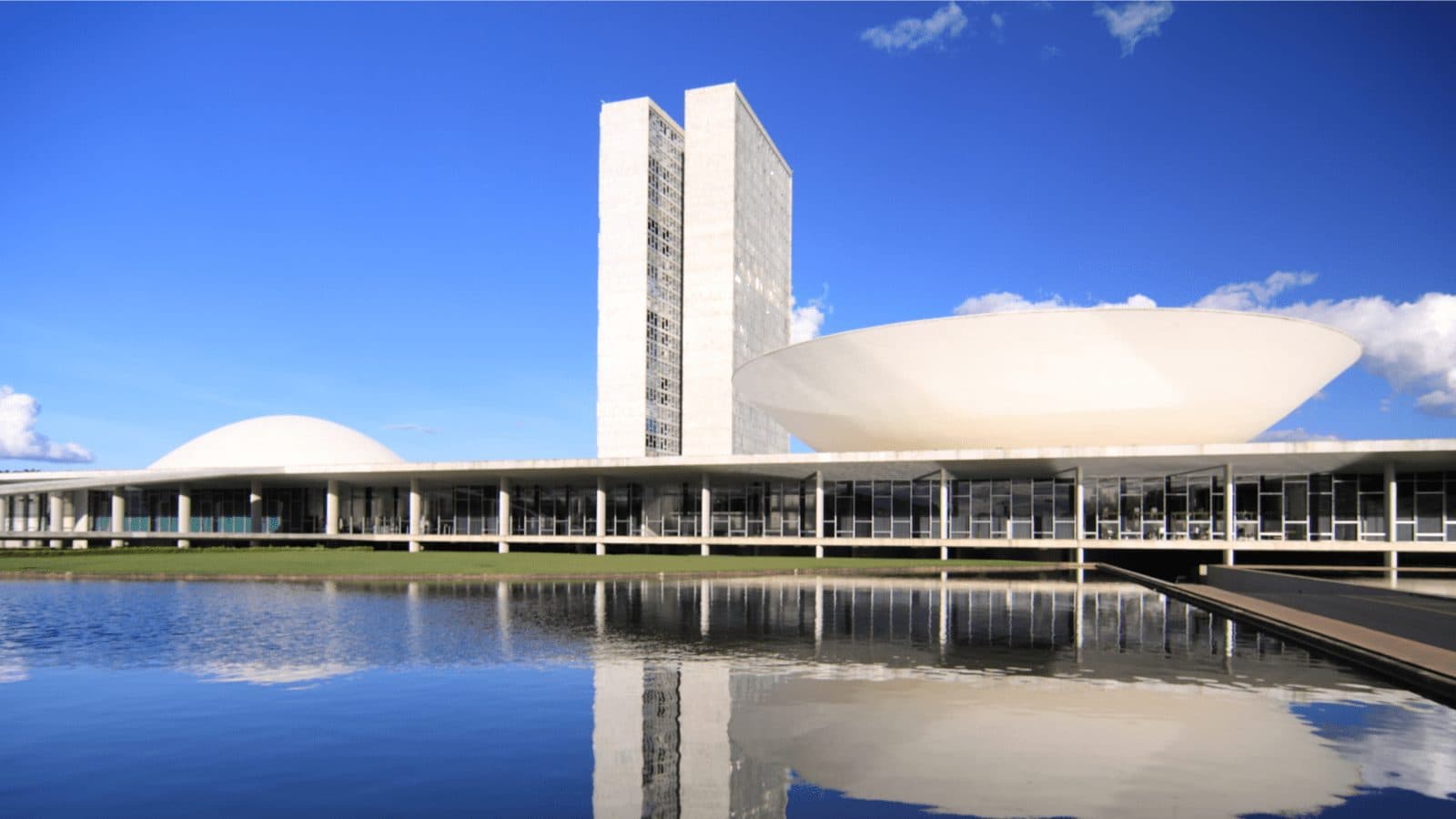Historic Brazilian Bill Regulating Crypto Heads to Senate Vote
Following approval by the Senate plenary, the bill will need to pass Brazil’s lower house before President Bolsonaro vetos or approves

Brazilian Congress | Source: Shutterstock
- Brazil’s Senate will vote on a bill that seeks to regulate crypto throughout Latin America’s largest economy
- Supervision and inspection of digital assets will be handled by the country’s central bank
Brazil’s Senate is set to vote on a bill aiming to regulate and legitimize digital assets throughout Latin America’s largest economy.
Bill 3825/2019 — which heads to a vote after clearing the country’s economic affairs committee on Tuesday — proposes regulatory guidelines for Brazil’s digital asset market, including an exchange licensing regime.
Introduced by Senator Flávio Arns, the bill specifically seeks to regulate services related to operations carried out with crypto on electronic trading platforms. It marks the first time such a bill is being considered in South America.
Supervision and inspection of digital assets will be handled by the country’s central bank, the bill reads. The Comissao de Valores Mobiliarios (Brazil’s Securities and Exchange Commission) will be charged with overseeing initial coin offerings.
The aim of the bill, proponents claim, is to regulate crypto-related crime and bring the unregulated market under the gaze of financial watchdogs in an attempt to monetize and police the budding industry. The guidelines draw up exact definitions of what constitutes virtual asset service providers, such as exchanges, and what constitutes crypto.
Measures to combat money laundering and other illegal activity, as well as penalties being applied to “fraudulent” or “reckless management” of crypto exchanges, are also being considered in the proposed legislation.
Following approval by the Senate plenary, the bill will need to be ratified by the Brazilian Chamber of Deputies — the country’s lower house, composed of representatives of all Brazilian states and the federal district. From there, President Jair Bolsonaro can choose to approve or veto the bill.
“The world is not waiting for the laggards,” said Rafael Bezerra, director of supervision at Brazil’s Financial Activities Control Council in a video. “It is important that we do not place ourselves among them in the near future.”
Last year, El Salvador moved to legalize bitcoin as legal tender alongside its national currency and the US dollar. The country’s president, Nayib Bukele, has been vocal about detaching his nation’s dependence on foreign interference in the country’s crypto decisions.
Get the news in your inbox. Explore Blockworks newsletters:
- The Breakdown: Decoding crypto and the markets. Daily.
- 0xResearch: Alpha in your inbox. Think like an analyst.






